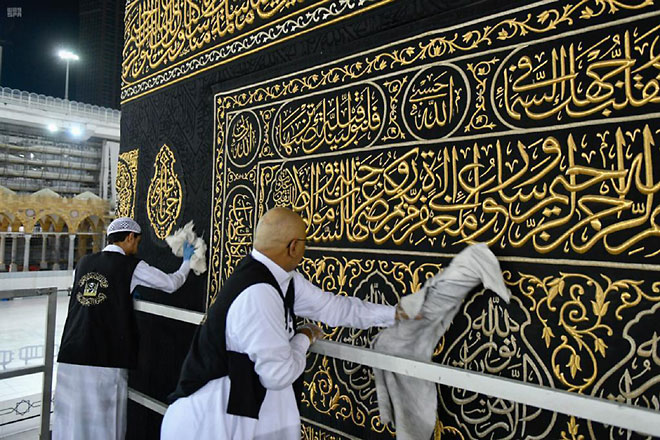New Delhi: The nationwide lockdown had ensured this year’s Ramzan was going to be like no other in living memory — no iftaar parties, no meeting with friends, no late night shopping, no prayers at mosques.
But many devout Muslims are appreciative the lockdown has helped them stay true to the spirit of the holy month. Three weeks into fasting, many Muslims feel the coronavirus-forced lockdown has a silver lining. It has left them with plenty of time to read the Quran, attend virtual Quran classes and focus on prayers.
After all, Ramzan is a time for self-discipline and introspection, they point out.
Tanvir Parvez, a lawyer from Ghaziabad, was among those bracing himself for a Ramzan devoid of its usual charms of special prayers in mosques (Taraweeh), sitting with his friends and family to break the fast at iftaar time and gatherings to discuss the teachings of Prophet Mohammad.
Special Ramzan
Parvez, who has never missed the Taraweeh during Ramzan, said he was gutted to learn that this year prayers would not be allowed in mosques due to the coronavirus lockdown.
“I was mentally preparing for a bad Razman experience with so many restrictions in place, but it has turned out to be a very special one as staying at home with family, discussing religion and reading the Quran with English translation has given me a new perspective on life,” the 63-year-old said.
The special prayers, iftaar congregations and spiritual gatherings are being missed, but the benefits have also made it a special “special Razman” this year.
“Earlier Ramzans were just about racing against time from the courts to reach home for iftaar, but now I am involved in making iftaar with my wife and though the spread is very simple, it brings the family closer as everyone is involved,” he said.
Time to introspect
People are also relishing the time they are getting to introspect and learn more about Islam with no distractions such as grand iftaar parties and shopping sprees.
Hasan Askari, an agriculturist based in Ghaziabad, said the month usually raced by with a string of iftaar parties and endless shopping trips, but not this time.
“The lockdown is proving to be a boon with distractions like shopping and endless iftaar parties not there, allowing me to read books on Islamic teachings which my brother-in-law gets from Jeddah and watching Islamic sermons online,” Askari said.
Prominent Muslim body Jamiat Ulema-e-Hind’s president Maulana Arshad Madani said it is heartening to see Muslims finding positivity in these difficult times and using the lockdown downtime to learn more about Islamic teachings and Quran.
“Another significant trend witnessed this year is that seeing the sufferings of migrant labourers and the needy, Muslims have undertaken charity at a scale not seen before,” Madani said.
Helping the poor
Even though everyone’s economic future is uncertain, Muslims are helping the poor with money and food in a massive way to realise the true meaning of Ramzan, he said.
Another popular trend this Ramzan has been Muslims watching religious programmes and taking up Quran classes online.
Professor Salim Engineer, vice president of the Jamaat-e-Islami Hind, said his organisation is webcasting many religious programmes on its YouTube channel to explain the meaning of Quranic verses and important Islamic issues.
“We are also webcasting programmes for non-Muslims. Recently, we shot one with religious leaders from different religions discussing the importance of fasting. In mosques, 1,000-1,500 people would listen to the discussions. This year, many thousands are watching these programmes online during Ramzan,” he said.
Iftaar food, normally an elaborate feast with kebabs, kormas and much more, have also become simpler.
Sultana Siddiqui, a homemaker from Lucknow, would spend most of her day preparing the meals. Not this time though.
“Making non-vegetarian delicacies during Ramzan takes up a lot of time. But this year with most meat shops closed and lockdown in place, the iftaar menu is very modest and allows plenty of free time to devote to Islamic learning and preaching,” Siddiqui said.
“I have enrolled for online Quranic classes to fine tune my Arabic pronunciation and also to enhance my understanding of the Quran. It has been a life-changing experience,” she said.
Missing the fervour
There are also those missing the festive fervour of iftaar parties and sehri (pre-dawn meal at the start of a fasting day) at old Delhi’s famous eateries.
“Ramzan is a time when family and friends come together — praying, fasting and feasting. With many family members stranded in different parts, the festive feel is missing this time,” said Qazi Aamir Ali, a corporate employee working in Gurgaon.
Also, the going is not easy for everyone. While middle and upper class homes are finding positivity during the holy month, the poor and the needy are struggling to make ends meet.
“We are fasting through the day and there is hardly anything to eat around sehri. Organisations and people are reaching out, so iftaar is sorted, but we begin our fast just by drinking water,” said Shaheen Bano, an out of work house maid and mother of six.
“We pray to Allah and fast that these difficult days will pass, I will go back to work and see smiles on my kids’ faces,” she said.
Ninth month
Ramzan is the ninth month of the Islamic calendar during which Muslims worldwide refrain from eating and drinking from dawn to dusk and end their fast in the evening. The month is in its fourth week now and Eid will be celebrated May 24 or 25, depending on the sighting of the moon.
For Muslims, this Ramzan is also about hope that their prayers will be answered and a new dawn will emerge in post-pandemic times.
PTI
